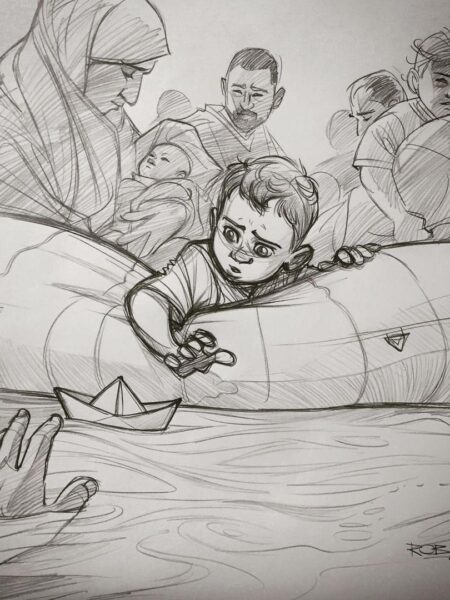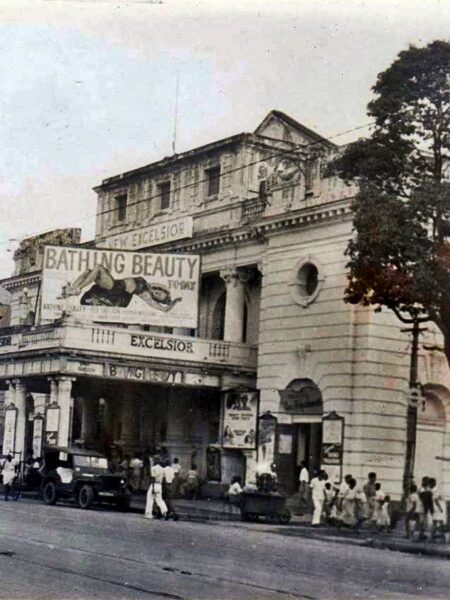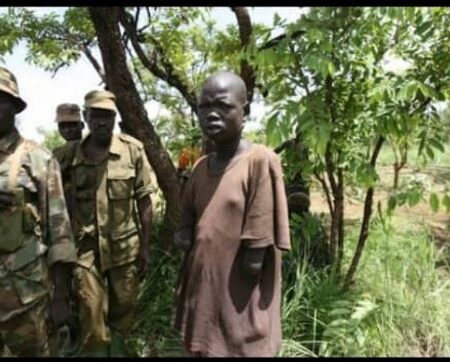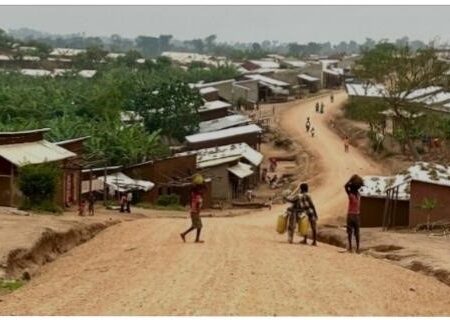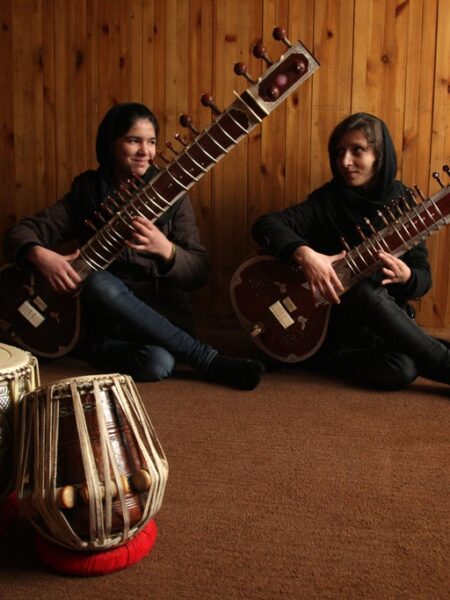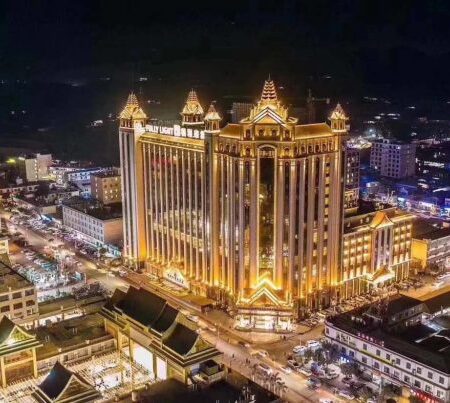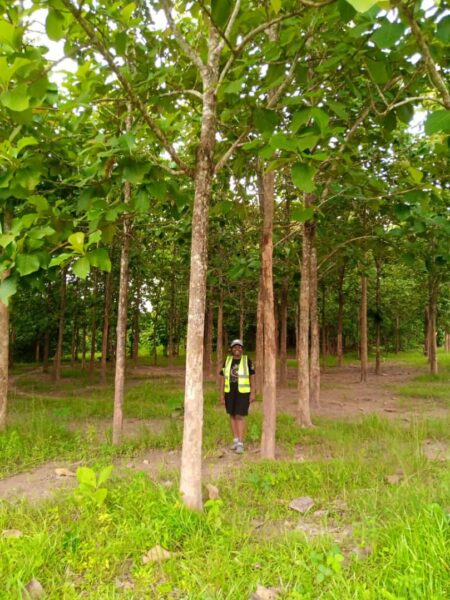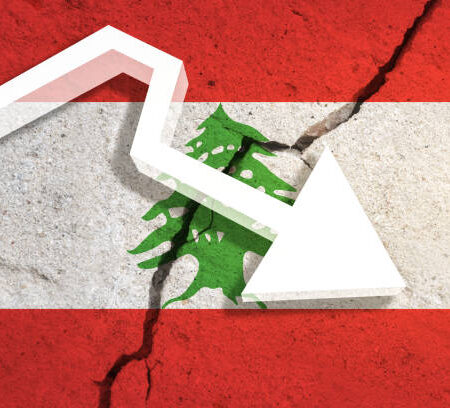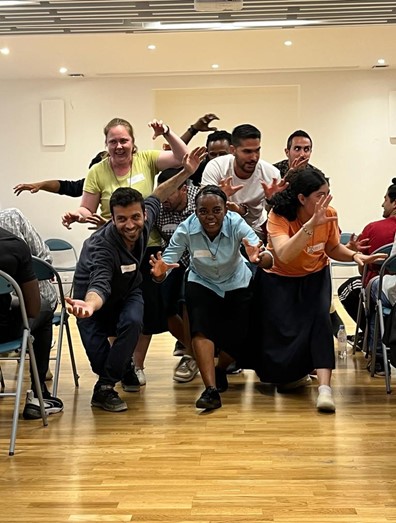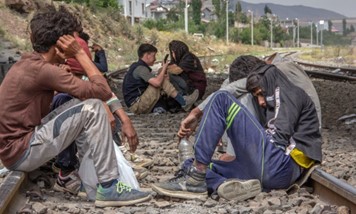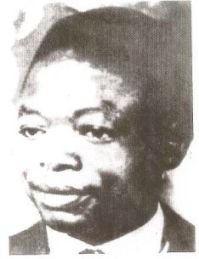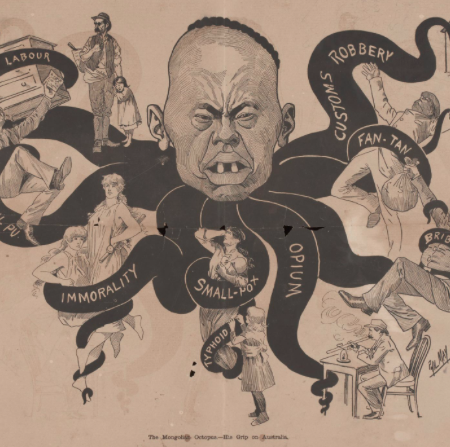TABLE OF CONTENTS
Introduction…………………………………………………………………………1-2
Life before migration……………………………………………………………2-4
Migration to Athens……………………………………………………………..4-7
Athens and Desfina: The life and the better life……………..………7
Conclusion……………………………………………………………………………7-8
Sources…………………………………………………………………………..……….8

Introduction
The postwar internal migration (not only a Greek, but a global phenomenon of different forms and intensity as well) transformed the urban environment of settlement as well as the provincial regions left behind. The process of urbanization, the base of the migration in question, was driven by a range of factors. A decisive role in the adaptation of migrants to the recipient cities was often played by the correlation of urban economic development and underdevelopment of the hinterland. While rural exodus spurred the needed economic growth, it also brought challenges and cultural changes with long lasting impacts on Greek society. With the intensity of the rural underemployment and instability the family economy units were vulnerable and exhausted. It wasn’t viable for the overpopulation not to be relieved. This paper follows the journey of seven people-six men and one woman- from Desfina, a mountainous Greek village in the district of Fokida (Central Greece), to the capital city of Athens during the first three postwar decades. Choosing the village of Desfina was first and foremost a practical choice; with my father being an internal migrant from Desfina to Athens (in a subsequent decade) as well, I had almost naturalized the process and the fact that it heavily affects people and their surroundings. This movement is not an exception but an example. Such movements have been researched before but mainly, if not only, from a demographic perspective[1]. However, the literal -as well as the inexhaustible metaphorical forms of- ‘boundaries’ that internal migration unveil before us should be studied reflectively with different focuses this time. How was the experience lived through? How did it alter participants’ perception of themselves, their surroundings, and their sense of belonging, stability and mobility? Internal migration was not realized and experienced as a permanent change; to validate that point of view, internal migrants felt responsible to act as agents of resistance towards a tendency to renounce and snub their rural origins.
Life before migration
A great example of how development took place in post-war Desfina is that even though that by 1928 the roads were lit most residencies didn’t have access to it up until 1963. Life was restricted but it was also based on self-sufficiency and self-consumption allowing people to get by. Most people worked in the fields in surrounding areas of the village and had to live there, in sheds, even for months. Childhood and adulthood were experienced in peculiar ways.[2]While their parents were gone, children would have to stay with their grandparents and take care of all the responsibilities left behind but gradually, the subsequent technological development allowed people to not leave home for such long periods of time anymore; many agricultural procedures started to get simplified.
“The main occupation was agriculture and livestock farming. When men were done with agricultural work, in their free time, practiced their trade, which they knew how to do very well, shoemakers for example, but only few had it as their primary occupation. Women were engaged with the loom” remembers Mr. L. Collectively agreed upon, one of the most prominent pictures of childhood in Desfina would be mothers and sisters at the loom. Interviewees’ descriptions of life in Desfina during the interwar and postwar period do not indicate intense social differentiations, similarly to other mountain villages, which especially during these times were defined by geographically imposed isolation. However, in the sixties, foreign capital was invested in the area with the establishment of the Air Force Fuel Base (NATO) in 1958 and the Aluminum Factory (Pechiney) in 1964 that intercepted the migration flow and contributed in the non-desolation of Desfina in the following decades; according to ELSTAT (Hellenic Statistical Authority) [3]population’s data:
| 1940 | 3.165 | 1951 | 2.668 | 1961 | 2.481 |
| 1971 | 2.147 | 1981 | 1.963 | ||
Primary school
The self-proclaimed “children of the village” use this term as if it protectively includes most of their nostalgia-clouded, early memories. School was considered optional and for many kids, if not most, not even that. Associatively, the first words that come to mind when asked about their childhood would be “difficult but simpler”. This phrase may sound like a common way an adult views and describes their childhood but in Mr. D’s interview it was followed by: “Many of us went to primary school here in Desfina, we all lost a year to the guerrilla war[4], if you care to make a note of that. We helped each other. Every evening we would study on our balconies out loud to help the others”. This sense of solidarity was to progressively become one of the most fundamental elements of the compatriots’ interaction while in Athens too.
Mrs. I remembers a very strict childhood intertwined with religion. “In my generation only 4 or 5 of us finished school”. Seeing how high school was one of the few ways out of the stagnation, underemployment and generally impoverished conditions, the disproportionate gender gap in education indicates a restriction that was of course defining women’s lives beyond their school years. Most girls would quit their education earlier than all the boys, at the basic level of primary school, if they even attended school in the first place. “In the sixth grade our class had only one girl. The others had stopped because they had to go work at the loom, in the fields, the shepherdesses had sheep and goats” says Mr.Α, born in 1936.
High school: the preparatory stage
5 of the 7 interviewees had to move to a nearby town after 6th grade to attend high school; to do so they had to live alone or in groups.
Mr. A remembers that he shared a basement without electricity with three other boys in 1949. The only convenience was that their tenant had included in the rent price to cook for them with goods that their parents sent. Similar descriptions were given by Mr. D and Mr. G. Deprivation was admittedly an element that permeated various aspects of life back then: “When I went to secondary school I had to go to Amfissa [the district’s capital] and live alone. For example, I went to the local grocery store there and my dad would pay the owner once every two or three months, he was from Desfina and he let us do that. One time, the owner said I had 52 drachmas, a rather low sum, in debt and my dad started scolding me for how much money I had spent”.
Before conducting the interviews I expected to find out that the interviewees had faced taunting about their “villager-like” accent or mannerisms in Athens. Contrary to my belief, two of them actually recall such incidents mostly during high school, in the aforementioned nearby towns. “I remember us always being mocked for our ‘heavy’ accent. It’s not like the people there didn’t have one as well, but I guess ours was just very intense”, is the memory of Mrs. I, almost identical to Mr. G’s. Throughout our conversations, Athens was described as a much more chaotic and sometimes impersonal setting than it would take for that to happen. For the most part, their safe spaces and interactions were structured and recycled among what and who was already known.
Migration to Athens
Driving factors and the first contact with the city
Mr. A after finishing high school in 1955 was convinced to try and get into Law school with a friend of his. “I was a really good student. Back then we didn’t know what that meant, nor did our parents, not really. But most of them were supportive of it”.
Mr. D remembers his dad, encouraging him to go to Athens and work at the public sector in order for his income to be stable, having lived in economic instability and uncertainty all his life. “It did save me”, he confessed. “It was my first time in Athens and a classmate of mine was already waiting for me at the bus station. I remember looking at the tall buildings, it was my first time experiencing something like that. For a summer I lived in a basement of an acquaintance of my father and afterwards I was a boarding student. Measured life. In the weekends, when we went out we always asked for half a portion”. He and his wife- a woman from Desfina as well- got married in 1967 and had to move to Athens due to Mr. D’s work.
Mr. G loved the sea since he was a little boy and his brother went to Athens to work in the navy. Similarly to Mr. D he remembers “The trend back then was to save yourself by working at the public sector. Everyone around me was supportive of that. They used to say ‘Even with rain, even with snow, the bowl would be full’. In 1964, he decided to go to Athens to find the least expensive tutoring institute in order to get into naval cadet academy. While he was being interviewed, he got asked about his father’s profession. “I told him my dad was a shepherd and he replied that it was impossible to accept me. When I asked the reason why he explained that he only enrolled admirals’ sons and that I was destined to fail. He advised me, if I were to keep trying, to not reveal that to anyone else. He said to try and change it to something that sounds better. How could I change it? That was, after all, my father’s profession,” he confided while laughing. “When travelling to Athens I remember being fascinated by the width of the road, that two cars could fit, I was used to narrow dirt roads. I felt overwhelmed. I remember the view on the roof of my brother’s building, Athens felt chaotic especially compared to all I was used to”.
Mr. L left at the earliest age out of all; he went to Athens right after finishing primary school in 1964, at the age of 12, to meet with his then 25 year old brother who was already there to study. He had only been to Athens once before “I remember the cars. Lots of cars. Lots of people. Especially in Omonoia square, the crowdedness. The buildings. Cars stood out to me the most though”.
Mrs. A and Mr. J got married and as they were waiting their first baby, in 1972, decided to move to Athens for a better life.
Mrs. I, born in 1956, finished high school and went to Athens to study. Before that she had visited the capital only a few times to see a doctor or visit a relative. “It was like a different planet, like a dream but it was still clear to me when that my intension was to marry in Desfina. By 25 I did return but I ended up meeting my husband in Athens and had to move back. It was very hard for me to do that. Back then career wasn’t really an option”.
One common point underlined by all interviewees was that growing up in the village, there was no television so a perception of Athens to be communicated to them was not as easy. It was later that a stereotype of ‘the Athenian lifestyle’ started developing within the residents of the village, gradually influencing how people who lived in Athens were viewed.
Moreover, when faced with the question “What did you take with you when leaving for Athens?” all seven replied with “the very basic and essential” showcasing necessity as the most decisive factor. They were all going to Athens to study, work and “save themselves”; migration was intimately related to its career and social mobility prospects.
Unbreakable ties and common spaces
It would be understandable if, by this part of the paper, a chapter about life in Athens was to follow. In order for this palpable absence to be conveyed I will not be trying to fill the gap of the paper and leave what was not said open for interpretation. Interview after interview it was gradually becoming more and more obvious that life in Athens, most if not all their adult life, was viewed as a temporary and transitory stage rather than a permanent change- let alone as immigration. It felt as if Athens was viewed as the work environment and Desfina the home to come back to. “In Athens there were no costumes and traditions, I remained the person I was,” says Mr. D when asked whether he felt that he tried to preserve the traditions he was raised with or adapted to a more modern way of living while in the city. “I was developing an inferiority complex in Athens. I think today it has been reset to zero but back then the girls in Athens were more modern and liberal, they knew places-it’s like that saying we use when someone doesn’t know something everyone else does: ‘Did you come from a village?’ Sometimes it would all feel immobilizing. The pace was different, everything was bigger, different and new. Anywhere I went my philosophy and my goal of returning home along with my parents’ advice was following me. There was no room for me to feel enthusiastic about a new, independent life,” Mrs. I, the last of the seven to migrate to Athens, in 1972, confesses. Migration as a parenthesis; holding onto a sense of temporality as a counterweight to all the imposed, rapid shifts in their lives.
The description of the heavily intermediated communication with family goes as following: “Those of us in Athens went down to the OTE headquarters every time we wanted to talk to our people in the village. There the clerk would call Amfissa first. And from Amfissa they would “send” the line to Desfina. The receiver of the call would be notified what time we would call again so that he could go down to the village post office, where the phone was located, to synchronize and contact”.
All seven participants clarified that during every holiday, at every given chance or time of need they would return home and while in Athens, they remember meeting at the bus stations or waiting for packages sent from home. Within the city, they felt the need to meet with “their people”, to find or create “fragments of Desfina”. As Stavridis writes in ‘Common Spaces’: “Space is both a product and a prerequisite of social relations, it has the potential to block and encourage certain forms of encounter. Space of commons exemplify new forms of social relations and of life in common.”[5] The men interviewees remember meeting in a “desfiniotiko” coffee shop with other villagers in the center of Athens and Mrs. I recollects similar meetings too: “I felt safer in spaces with other people from Desfina. I didn’t feel lost anymore. We would always meet in small taverns to drink wine and communicate in our dialect, laugh with jokes from home. I even used to write at our local paper under the name ‘authentic Desfiniotissa’. At first I tried to hide the way I talked to other people, it was very tiring having to plan how I would express myself; nowadays I love highlighting it. It’s not like I ever talked the ‘Athenian dialect’, it wasn’t in my DNA”.
Athens and Desfina: the life and the better life
All seven of the interviewees, now in their sixtieth, seventieth or eightieth decade of life have lived 50 to 70 years in Athens; they have children and grandchildren and are now retired. Throughout their whole lives, but especially after they stopped working and were relieved of some of their commitments, they returned to Desfina and invested in their houses there. “We all came back and made great houses in our village, there are roads now, the development has arrived. Athens didn’t age well. I have travelled a lot through the years and I would say Desfina is doing good. Our house here is always open, I always bring my friends to meet our place, our traditions. I always felt the same about it; if my goals and dreams could fit in the village I would’ve stayed. It’s not like I actually left Desfina. Only a person that was running from something would actually leave. I just had to go live out my potential and come back, I didn’t really leave. My village symbolizes my very being. In the city I managed to reach my goals, earn some money but it gave me lots of anxiety too. Athens is characterized by its abuses and misuses,” says Mr. L. “5 years ago we got this house. Our kids and grandkids like to visit Desfina too. I like coming here during Easter and not leave until October. I have spent almost all my summers and Easter holidays in Desfina. Even our friends from Athens are to come during the summer again for a weekend or so, everyone thinks of Desfina as an exceptional village. It’s bigger than usual Roumeli’s[7] villages too,” claims Mr. D.
Conclusion
All in all, internal migration and urbanization were powered by economic, demographic and political imbalances but evolved as a multifaceted socio-cultural phenomenon of particular anthropological interest. Oral history illuminates such experiences in a way that allows stereotypes and mindsets to be understood to their core without such intense heterospecification. Internal migration, during the first post-war decades, was not immediately realized and experienced as a struggle to maintain and defend rural origins against urbanism as I had predicted; people subjected to it were indeed more receptive to an interpretation of it as a temporality, similar to a commute, a journey, with their perceptions of time, identity and safety/stability being redefined along the way as well. But was later on that the “Athenian urban lifestyle” stereotype was truly shaped and communicated on the periphery affecting not only the corresponding internal migrants of the following decades but the village’s lifestyle as well.
[1] Such as Paraskevi Kapoli’s ‘Esoteriki Metanasteysi Stin Athina(1950-1970)’ (The National and Kapodistrian University of Athens, 2014). [in Greek]
[2] Παπαθανασίου Μαρία, Μεγαλώνοντας στον Ορεινό χώρο-Παιδιά και παιδική ηλικία στο Κροκύλειο Δωρίδας (Historical Archive of Greek Youth (ΙΑΕΝ), 2003).,
[3] “Απογραφές Πληθυσμού 1821 – 2021 – ELSTAT,” www.statistics.gr, accessed July, 2023, https://www.statistics.gr/census_priv_results_1821-2021.
[4] The Greek civil war took place from 1946 to 1949 between the rebels of the Communist-led Democratic Army of Greece and the established government of the Kingdom of Greece.
[5] Σταύρος Σταυρίδης, Κοινός χώρος(ANGELUS NOVUS, 2018)
[7] A colloquial term for Central Greece.
Sources
David H Close and David H. Close, Greece since 1945 (Routledge, 2002).,
Παπαθανασίου Μαρία, Μεγαλώνοντας στον Ορεινό χώρο-Παιδιά και παιδική ηλικία στο Κροκύλειο Δωρίδας (Historical Archive of Greek Youth (ΙΑΕΝ), 2003).,
Σταύρος Σταυρίδης, Κοινός χώρος(ANGELUS NOVUS, 2018).,
Παρασκευή Καπώλη, Εσωτερική μετανάστευση στην Αθήνα (1950-1970) (The National and Kapodistrian University of Athens, 2014).
“Απογραφές Πληθυσμού 1821 – 2021 – ELSTAT,” www.statistics.gr, accessed July, 2023, https://www.statistics.gr/census_priv_results_1821-2021.
